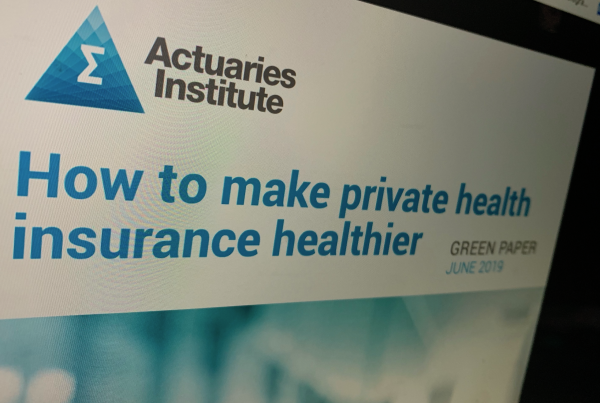The Actuaries Institute has called for greater transparency in specialist fees and patient outcomes in a new report on private health insurance.
The report, How to Make Private Health Insurance Healthier, says transparency is the best way to "empower individuals".
Health minister Greg Hunt announced earlier this year the government would fund the development of a national searchable website to provide the public with greater access to information about the costs of specialist services.
The announcement followed the release of a report from the ministerial advisory committee on out-of-pocket costs comprised of stakeholders and chaired by the Commonwealth chief medical officer Professor Brendan Murphy.
It says policy-makers should consider the introduction of 'independent healthcare coordinators'. These coordinators, who could be general practitioners, would be paid to help patients navigate the best treatment options and manage the level of out-of-pocket expenses for surgery.
"Combining all costs associated with a treatment into a single total cost, while inherently challenging in the private health care industry, would be a game changer," said the Actuaries Institute.
"This should help patients understand the total cost of their treatment and budget accordingly, target inefficiencies in the supply side of healthcare services and lower the total cost for the chosen healthcare pathway."
The institute has also called for the introduction of a "prospective risk equalisation scheme" following the introduction of standardised product classifications (Gold, Silver, Bronze and Basic).
"Such an approach would provide incentives for insurers to drive down claims costs by improving the efficiency and value of the health care services covered (and without compromising cover)," it said.
"Those benefits would be passed to their members in the short term and spread to the community in the medium term through reduced premiums."
It said private health insurance premiums reflect the combination of claims volume and cost.
"The best way to reduce the volume of claims would be to get everybody healthier, which obviously has broader benefits. Government and private organisations have a shared responsibility to continue to innovate and find new and better ways to drive health improvements. On the cost side, there are plenty of parts of the supply chain where inefficiencies may be targeted such as eliminating additional and hidden fees and continued prostheses reforms."
"This is a significant report that shows, in its current form, private health insurance is suffering declining participation and rising premiums," said Actuaries Institute president, Nicolette Rubinsztein.
"If these trends continue, there will likely be a significant shock to the balances in the system. Those balances include private and public sector funding, contracts between insurers and providers, and relationships between specialists, GPs and patients."
According to report author Bevan Damm, "Insurers are unable to drive meaningful change alone. There needs to be collaboration between governments, hospitals, health care providers, doctors, specialists and the public."
"In many cases there will be winners and losers," said Mr Damm, a Partner at Ernst and Young. "But driving a high quality and efficient health care system needs to be the ultimate objective."
The report was developed based on input from stakeholders across government, insurers, private health insurance industry groups, private health care providers and medical professionals.
Actuaries Institute CEO, Elayne Grace, said the report recommends changes that could improve health insurance so that Australia’s health system delivers for all.
“We acknowledge the unique complexities of the health care system necessarily complicate reform,” said Ms Grace. “Given the importance of these decisions, a strong evidence base must be established. The paper is a great starting point for that discussion.”
